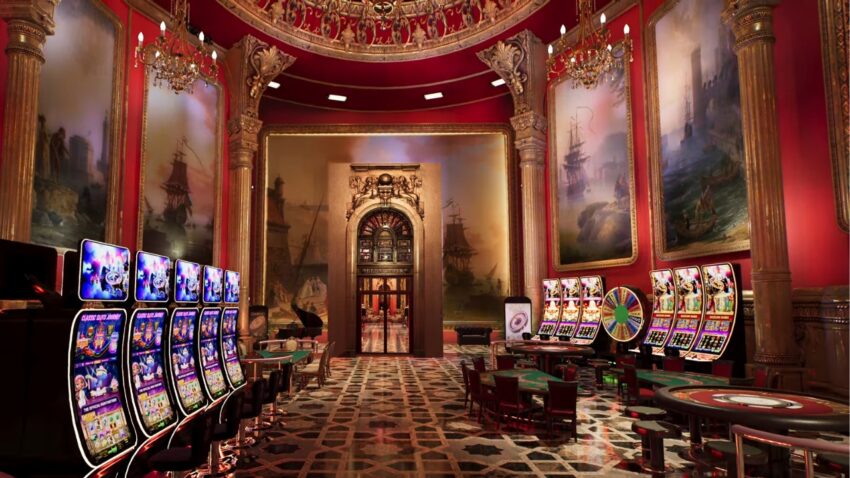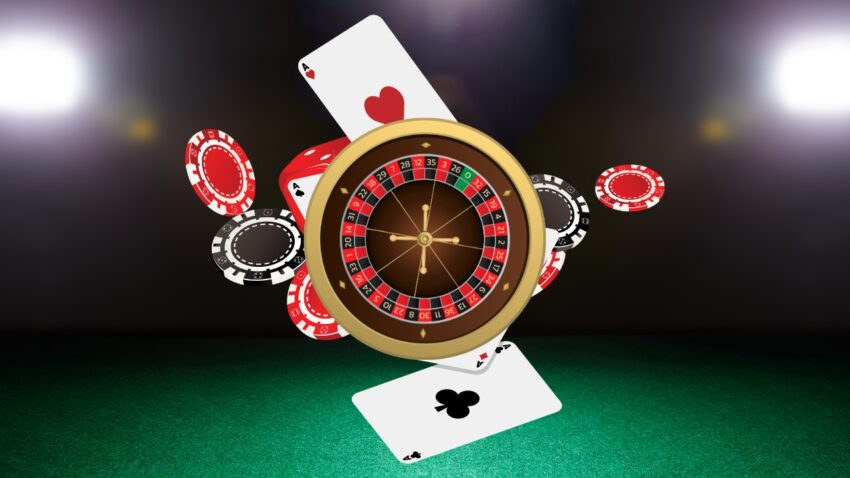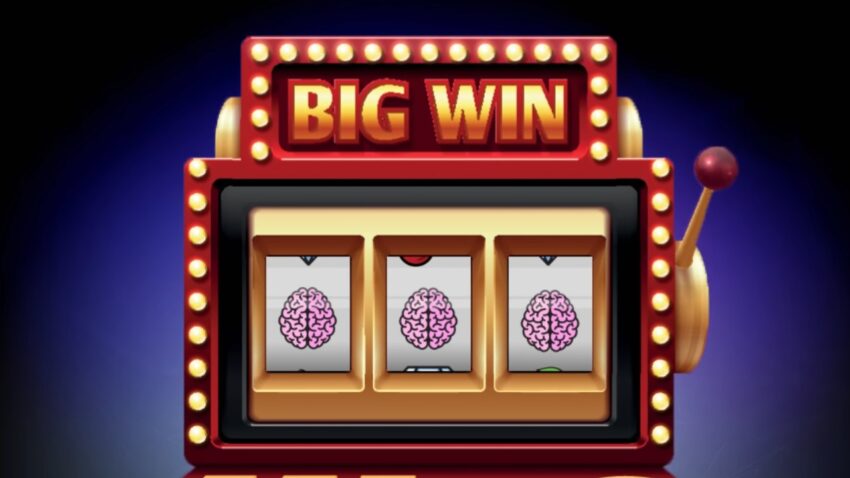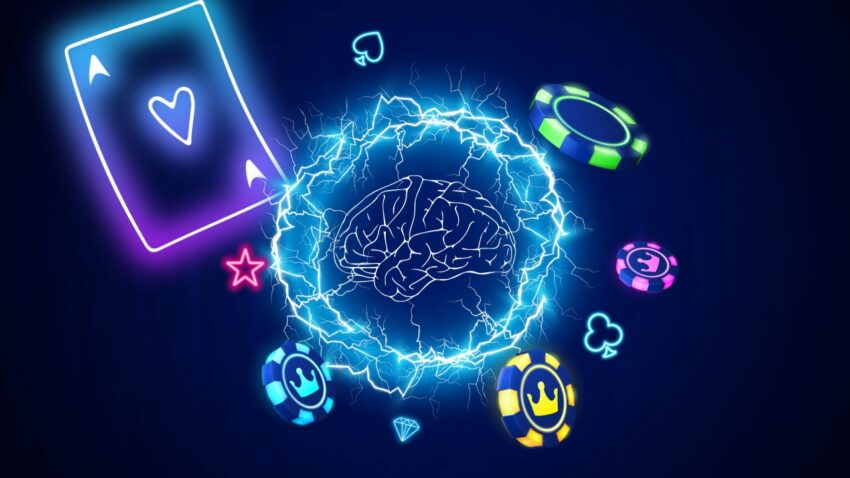Casinos, with their flashing lights and myriad game choices, are not designed by chance. Each element is a cog in a carefully engineered experience, tailored to tap into the psychology of gambling. By understanding and anticipating human behavior, casinos can create environments that are hard to walk away from and even harder to forget.
Casinos’ strategies are rooted in decades of psychological research, taking into account the subtle intricacies of human decision-making processes. They expertly predict when a player is likely to make a bet, continue playing, or up their stakes. The same pattern goes for all online casinos out there, like https://india-1xbet.in/casino.
From the positioning of games to the pattern of carpeting, casinos orchestrate the environment to guide behavior.
Casino Environments

In our casinos, we meticulously design environments that encourage guests to stay longer and engage more deeply with our gaming offerings.
The Role of Environmental Cues
We understand the importance of environmental cues in guiding behavior. Every aspect of our casino floor is strategically planned, from the layout that guides you naturally towards gaming areas to the absence of clocks and windows, which creates a timeless space. We use patterns and pathways to steer you subtly, maximizing exposure to a variety of games.
Impact of Sounds and Lights on Behavior
Our casinos are alive with the energy of flashing lights and winning sounds. These dynamic visuals and audio are not just for entertainment; they serve a dual purpose.
The lights and jingles of slot machines signal winning, nurturing a sense of potential victory. Even the minutest win is celebrated with bright lights and loud noises, reinforcing the gaming behavior we wish to see.
Influence of Alcohol and Social Dynamics
We ensure that alcohol is accessible, understanding its effect on your judgment and willingness to take risks. Our complimentary drinks are a staple of the casino experience and serve to lower inhibitions.
Additionally, we create environments that are conducive to socializing with friends, fully aware that the presence of peers can dramatically increase your likelihood of engaging in games—especially when the group is sharing a collective experience of fun and anticipation.
Player Tracking and Data Analysis
![]()
In the gaming industry, we understand that effective player tracking and data analysis are crucial. These processes allow us to predict and respond to player behavior more accurately.
Use of AI and Machine Learning
In recent years, we have increasingly incorporated Artificial Intelligence (AI) and Machine Learning (ML) algorithms to enhance our understanding of player dynamics. These technologies parse through large datasets collected from player interactions, looking for trends and patterns.
For example, AI-powered systems might analyze the frequency and duration of play to forecast future behavior, thereby enabling us to customize offerings and manage risk.
Loyalty Programs and Data Collection
Loyalty programs play a pivotal role in data collection. Through these programs, we incentivize players to share information in exchange for rewards. The data we collect includes but is not limited to:
- Game choices
- Bet amounts
- Win/loss ratios
- Session lengths
Gambling Psychology and Behavior Patterns

Understanding the psychological mechanisms that drive gambling behaviors is crucial to recognizing why casinos are adept at predicting player actions.
We explore how the allure of risk and potential rewards impact gambling decisions, the role of dopamine in pleasure seeking, and the patterns that emerge in problem gambling.
The Psychology of Risk and Reward
In gambling, risk and the anticipation of reward are powerful motivators. We note that when players engage in gambling, they’re often chasing the thrill of a potential win.
The uncertainty of the outcome plays a significant role—this is where the excitement lies. It is not just the reward itself but the anticipation of it that drives the behavior.
- People are naturally drawn to the excitement of potentially gaining something valuable
- Waiting for the game’s outcome heightens the emotional response, whether positive or negative.
Dopamine and Pleasure in Gambling
Dopamine, a neurotransmitter linked to pleasure and reward, significantly influences gambling behavior. We observe an increase in dopamine levels during gambling, especially in situations with uncertain outcomes. This biological factor can explain why gambling is enjoyable and why some individuals repeatedly seek out these experiences.
- Occurs during enjoyable activities and heightened by unpredictability.
- Players often continue to gamble to experience the dopamine-induced feelings of pleasure.
Problem Gambling and Behavioral Issues
Problem gambling and gambling disorder are serious behavioral issues that some individuals develop. We recognize that these compulsive behaviors stem from the same psychological and biological factors that govern harmless gambling but taken to an extreme. It involves a continuous or periodic loss of control, leading to detrimental personal and social consequences.
- Persistent and recurrent problematic gambling behavior.
- Can include relationship issues, financial problems, and interference with responsibilities.
Within the casino environment, understanding these behavior patterns helps to tailor gambling experiences to individual players, anticipate future actions, and offer appropriate incentives, which ultimately benefits both the player and the casino’s operations.
Gaming Machines and Table Games

Casinos leverage sophisticated designs in gaming machines and strategic features in table games to influence and predict gambler behavior.
Slot Machines and Game Design
We observe that slot machines are engineered with a combination of psychological triggers that promote continued play. Their game mechanics often mask losses as wins — for example, when a payout is less than the initial bet but is still accompanied by flashing lights and euphoric sounds.
The visuals are colorful and the in-game bonuses are designed to give intermittent rewards, which encourage a behavioral pattern known as the “gambler’s fallacy”, where the player believes a win is due after a string of losses.
Roulette, Poker, and Skill-Based Games
In contrast, table games like roulette utilize a different set of psychological principles. Roulette is governed by randomness, creating a high level of uncertainty and excitement. The anticipation of the wheel’s result encourages gamblers to continue placing bets in the hopes that the odds will favor them.
Meanwhile, skill-based games like poker not only depend on chance but also on the player’s skill. Our understanding here is that skilled gamblers often feel they have more control over the outcome, reducing the feeling of risk and hence increasing their engagement time at the table.
The Bottom Line

In our analysis of casino operations and their strategies to anticipate player behavior, we have uncovered a myriad of psychological and mathematical tactics. Casinos leverage an intricate blend of reward systems, game design, and environmental elements to create an engaging and at times, addictive experience.
By acknowledging these mechanisms, we gain a deeper understanding of both the allure and risks inherent in casino gaming. Our insights reveal the calculated nature of gambling environments, designed to sustain player attention and increase the likelihood of return visits.
Related Posts:
- The Business Of Casinos: Exploring the Economic…
- Best Casinos in Santa Lucia: Luck Shines Brightly
- 6 Ways How To Live In San Francisco City On A Budget…
- Why a Marketing Agency is Worth It: Achieving…
- The Best Time to Fish Lake Minnetonka: A Seasonal Guide 2024
- What Is a Teaser in Sports Betting: A Comprehensive…










